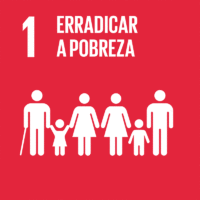Ciência_Iscte
Publicações
Descrição Detalhada da Publicação
Internet use by middle-aged and older adults: Longitudinal relationships with functional ability, social support, and self-perceptions of aging
Título Revista
Psychology and Aging
Ano (publicação definitiva)
2021
Língua
Inglês
País
Estados Unidos da América
Mais Informação
Web of Science®
Scopus
Google Scholar
Abstract/Resumo
In an increasingly digital world, those who remain offline may face greater challenges across multiple contexts of everyday life. Besides being less likely to be internet users, older age groups go online less frequently and for fewer activities. Understanding which factors facilitate or prevent internet use in later life is therefore essential to minimize existing age-based digital inequalities. Based on the 2014 and 2017 waves of the German Ageing Survey, comprising 3,479 respondents aged 40 years and older, this study examined the longitudinal relationships of a wide range of often overlooked, yet potentially relevant factors related to functional ability, social support, and self-perceptions of aging with general internet use and seven specific online behaviors. As the only factors relating to general use and a considerable number of specific uses, cognitive functioning and competence-related self-perceptions of aging emerged as the most important correlates of internet use in middle and late adulthood. Better cognitive functioning preceded contacting friends, acquaintances, and relatives, searching for information, banking, and shopping more frequently 3 years later. In turn, competence self-perceptions of aging preceded contacting others, searching for new social contacts, seeking information, banking, engaging in online entertainment, and creating contents more frequently 3 years later. Reciprocal relationships were also found between each factor and general use, suggesting mutual influences. Additionally, physical functioning and received informational support preceded greater use for specific activities. These findings elucidate which factors to consider when developing effective strategies to promote general and specific internet use among middle-aged and older adults.
Agradecimentos/Acknowledgements
--
Palavras-chave
Technology,Cognitive function,Social support,Perceptions of aging,Stereotype
Classificação Fields of Science and Technology
- Ciências Biológicas - Ciências Naturais
- Medicina Básica - Ciências Médicas
- Medicina Clínica - Ciências Médicas
- Ciências da Saúde - Ciências Médicas
- Psicologia - Ciências Sociais
Registos de financiamentos
| Referência de financiamento | Entidade Financiadora |
|---|---|
| PD/BD/128322/2017 | Fundação para a Ciência e a Tecnologia |
| UIDB/03125/2020 | Fundação para a Ciência e a Tecnologia |
Contribuições para os Objetivos do Desenvolvimento Sustentável das Nações Unidas
Com o objetivo de aumentar a investigação direcionada para o cumprimento dos Objetivos do Desenvolvimento Sustentável para 2030 das Nações Unidas, é disponibilizada no Ciência_Iscte a possibilidade de associação, quando aplicável, dos artigos científicos aos Objetivos do Desenvolvimento Sustentável. Estes são os Objetivos do Desenvolvimento Sustentável identificados pelo(s) autor(es) para esta publicação. Para uma informação detalhada dos Objetivos do Desenvolvimento Sustentável, clique aqui.

 English
English




